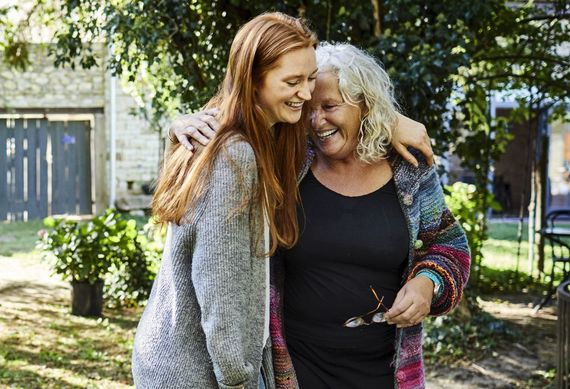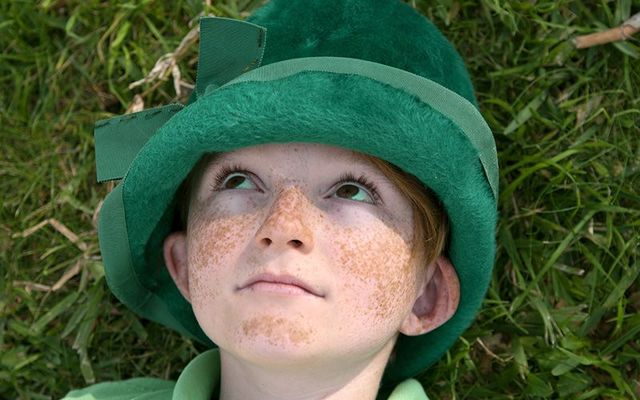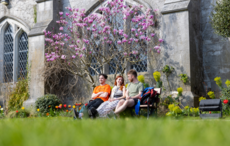Utilizing the collective wisdom of the Irish people gleaned from a turbulent history, Irish seanfhocals (proverbs) have some solid advice to live by during the COVID pandemic.
During the COVID-19 I've spent, as most people have, a lot of time at home. This valuable time afforded me the chance to spend some time refreshing my Irish language skills by researching seanfhocal.
Literally meaning “old word,” seanfhocal is more precisely translated into English as the word proverb — which the dictionary defines as “a short pithy saying, stating a general truth or piece of advice.”
Considering the fact that the Irish language is one of the oldest in the world, there are centuries’ worth of seanfhocal to explore and investigate – making the exercise both daunting and exhilarating.
Seanfhocal epitomize, in concise, discerning words, the collective wisdom of the Irish people gleaned from a turbulent history. A history in which the Irish people faced seemingly insurmountable challenges, including invasions, poverty, natural disasters, famine, mass starvation, rebellions, mass emigration, and yes, fatal diseases.
Read more: How to practice yoga and mindfulness in Irish
The Irish people survived each harrowing ordeal, growing stronger as a society each time. In their long history, the Irish survived overwhelming odds. Their shared experiences of survival synthesized into hard-learned truths, words to live by, seanfhocal.
What I found striking in my exploration of these enigmatic, ancient Irish proverbs is the inherent truth that resonates in contemporary times, particularly now.
Perhaps the essence of the Irish people's shared experiences may provide a unique perspective as well as encouragement for today’s changing reality.
Is ait an mac an saol
Literally meaning “life is a strange son,” this proverb translates into “life is strange.”
"Life is strange!"
Strange indeed! Only a few months ago, we were living our daily lives as normal human beings. Hugging our loved ones, shaking hands with friends, eating normally in restaurants, exercising at the gym, getting haircuts, going to the library, enjoying a performance at the theater, or a music concert. If someone had predicted these things would not be possible for a period of time, it would have been unimaginable.
Yet, that is the immediate reality. Despite the current situation, there is a day, in the not too distant future, these times will pass and daily lives will resume. When that day comes, each hug will be sweeter and each handshake warmer. The simple pleasures of everyday life will be more fully and deeply cherished because of this experience.
Read more: 100 Irish first names and their beautiful meanings
Ní neart go cur le chéile
“There is no strength without unity.”
“There is no strength without unity.”
From the time of the Norman Invasion, the Irish realized that disunity in their ranks was a weakness that benefited their enemies. Today, the world is facing a powerful, invisible enemy. That enemy preys upon all, no matter the race, gender, age, creed, sexual orientation, political affiliation, or nationality of an individual.
In order to weaken this common enemy, overcome it, and defeat it, it is necessary for everyone to be united in following the protocols that have been created, staying strong in the process. Scrupulously washing hands and social distancing are simple tasks, yet imperative in this environment. Strength is a product of unity and unity instills strength. It’s a win-win. If everyone pulls together, united in a single purpose for the benefit of all, the invisible enemy will be defeated.
Níl aon tinteán mar do thinteán féin
The literal meaning is: “There's no fireplace like your own fireplace.”
“There's no fireplace like your own fireplace.”
The proverb is reminiscent of Dorothy’s mantra in the “Wizard of Oz” when she says, “There's no place like home.” In these uncertain times, it is a blessing to have a refuge to be able to retreat to.
While we're all spending much more time home, experts have advised that it’s beneficial to set-up a daily routine. Get up, take a shower, get dressed, and have a plan for each day. Spending more time at home provides an opportunity to slow down, take a break from the usual fast-paced world of modern society.
It’s a chance to relax. Read a book. Meditate. Listen to music. Work in the garden. Bake a cake. Try a new recipe. Go for a walk. Play board games with family. Put Marie Kondo’s organizing techniques into use. Use technology to socially engage.
So often daily lives are too busy to allow time to just slow down and take it easy. Now there’s available time to do all the things that there hasn’t been time to do, and do it in the safety of home.
Read more: Irish language phrases for when you're stuck for words
Dá fhada an lá tagann an tráthnóna
The literal translation is: “No matter how long the day, the evening comes,” meaning no matter how bad things are, they will get better.
“No matter how long the day, the evening comes.”
It’s natural to wonder “when will our lives get back to normal?” Right now, it seems as if there is no end in sight and that the day is surely long. There is hope. Medical and scientific experts are working round the clock to find a vaccine.
The heroes in this fight are the frontline medical staff, doctors, nurses, and hospital staff, who are risking their own health by working with limited supplies to help those in need.
Everybody's, every one of us... our extraordinary efforts will ultimately ensure a return to normalcy.
Ar scáth a chéile a mhaireas na daoine
This poignant proverb literally means that “people live in each other’s shadows.” The translation often used is: "it is in the shelter of each other that people survive.”
"It is in the shelter of each other that people survive."
This seanfhocal has never been truer than in today’s world. As social beings, people are communal by nature. Communities are interdependent. What happens to one, impacts another. Simply put, people need each other to survive.
That is a powerful statement that is being played out on the world stage this year. “Shelter in place” is a policy that has saved and will continue to save lives. Staying home to contain the possible spread of the virus is an act of selflessness.
A simple deed that will help to minimize the number of people who will be infected. It is difficult to be distanced from loved ones and challenging to be confined with restrictions on our movements.
For our individual parts, all we can do is accept this hard reality, acknowledge that compliance saves lives, and ultimately protect our fellow citizens and loved ones. Non-compliance jeopardizes everyone. To paraphrase the proverb, it is by sheltering-in-place that people will survive.
These ancient Irish seanfhocal demonstrate the enduring nature of mankind and also how our lives are inextricably linked and interconnected—across cities, states, countries, continents.
Caring about one another, working together, sharing the load, connects us and makes us stronger. As we muster the fortitude needed to unify to defeat the common enemy, there is a day when efforts will be rewarded and success will be achieved.
On that victorious day, the Irish words “beir bua agus beannacht” will resonate —“take a victory and a blessing.”
WATCH: Choir's infectious rendition of ancient Irish language song
* Originally published in March 2020.
This article was submitted to the IrishCentral contributors network by a member of the global Irish community. To become an IrishCentral contributor click here.




Comments